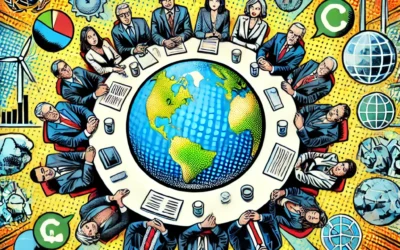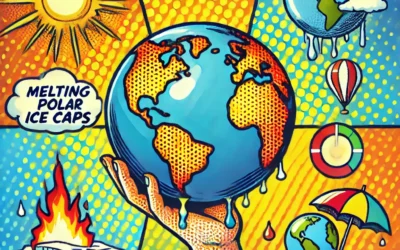Climate: Understanding Our Changing World
The term “climate” conjures images of vast landscapes, melting glaciers, and extreme weather events. But what exactly is climate, and why does it matter? In this article, we delve into the science, impacts, and urgent need for action regarding our planet’s changing environment.
What Is It?
Climate change refers to long-term alterations in Earth’s average weather patterns. These changes affect local, regional, and global climates. The consequences are far-reaching, impacting ecosystems, economies, and human well-being. Let’s explore the key aspects of climate change:
1. Unprecedented Changes
Scientists from the Intergovernmental Panel on Climate Change (IPCC) report that we are witnessing unprecedented changes across the entire system. Some of these shifts have not occurred in thousands, if not hundreds of thousands of years1. Rising sea levels, intense droughts, severe fires, and melting polar ice are just a few of the visible effects.
2. The Role of Greenhouse Gases
Human activities, particularly the burning of fossil fuels, release greenhouse gases (GHGs) into the atmosphere. These GHGs trap heat, leading to global warming. Since 1850-1900, human-induced emissions have caused approximately 1.1°C of warming1. Without immediate and substantial reductions in emissions, limiting warming to 1.5°C or even 2°C will be challenging.
3. Regional Impacts
While global averages provide a broad picture, climate change manifests differently in various regions. For instance, the Arctic experiences more than twice the warming observed globally. The Amazon battles early-year fires, threatening its vital carbon-absorbing vegetation2. In Panama, droughts deflate the water cushion that lifts ships through the Panama Canal, disrupting global trade routes2.
Mitigation and Adaptation
1. Urgent Action Required
Mitigating climate change demands swift action. We must reduce emissions of carbon dioxide (CO₂) and other GHGs. While benefits for air quality will be immediate, stabilizing global temperatures may take 20-30 years1. The IPCC’s Sixth Assessment Report underscores the urgency of this task.
2. Adaptation Strategies
Adapting to a changing climate is equally crucial. Communities worldwide must prepare for rising sea levels, extreme weather events, and shifts in ecosystems. Sustainable practices, resilient infrastructure, and conservation efforts play pivotal roles.
Conclusion
Our planet’s climate is at a crossroads. The choices we make today will shape the world for generations to come. By understanding climate science, embracing sustainable practices, and advocating for policy changes, we can safeguard our shared home.
Remember: Climate matters. It’s not just about the environment; it’s about our survival and the well-being of future generations. Let’s act now, for a more resilient and harmonious planet.
Learn more:






